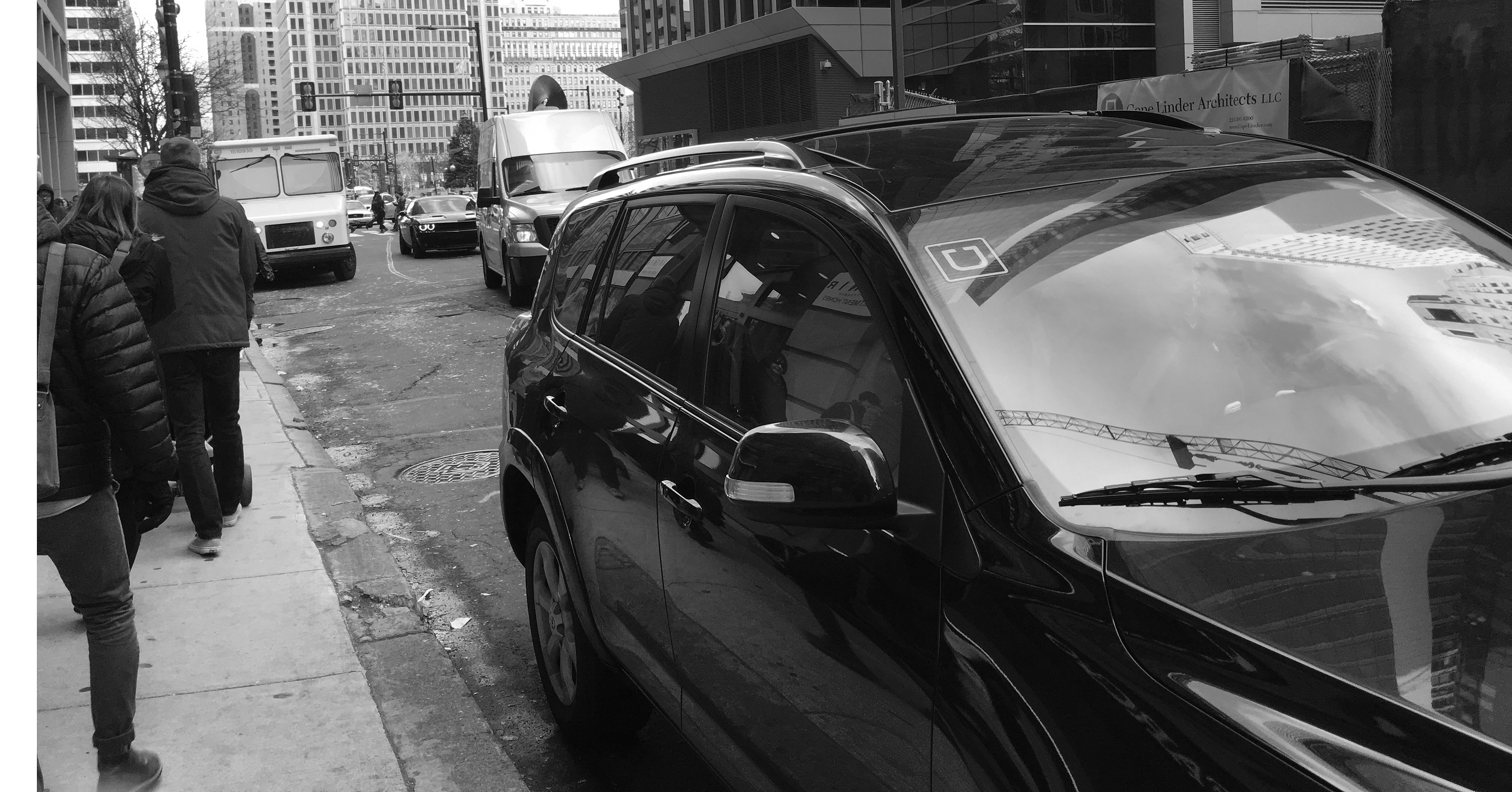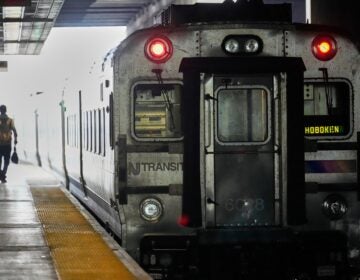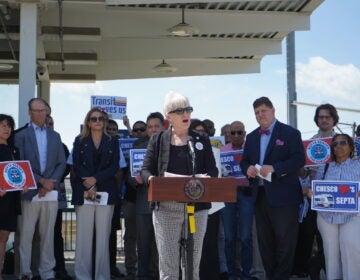Drivers and disabled give PPA an earful over rules for Uber and Lyft

This Friday Taxi drivers, UberBlack drivers, and disabled residents united to vent their displeasure with the Philadelphia Parking Authority’s loose regulatory grip on Uber and Lyft.
The loose coalition that long tried to fight off transportation network company (TNC) legalization, which went into effect last fall, now wants the PPA to adopt more rigorous regulations.
When Uber first introduced its UberBlack service in Philadelphia, limo drivers saw it as a boon, but the bubble burst when UberX came to town.
“Compared to what we made three years ago, we’re not even getting close,” said Ali Razak, an UberBlack driver and spokesman for the Philadelphia Limousine Association. “We’re down from over $200 a day to just $75.”
UberBlack operates simply as an app-based dispatch service for limousines; Uber’s more popular UberX service allows drivers to pick up riders using their own regular vehicles at a much lower cost.
The UberBlack drivers, who recently began to unionize, plan to submit a formal petition to the PPA demanding a cap on the the total number of TNC vehicles operating in Philadelphia.Other demands include an increase in rates and a ban on TNC vehicles with out-of-state plates. The UberBlack drivers say that UberX and Lyft drivers from New Jersey and Delaware flood the city, depressing prices and, relatedly, their incomes.
James Watson, a manager with Freedom Taxi, also implored the PPA to ban out-of-state TNCs from operating in Philadelphia. TNC regulations in other states have limited such cross-state competition—Pennsylvania-based drivers cannot make pick ups in New York City, for example, where TNC drivers need to be licensed with the city’s taxi and limousine commission.
The PPA has said that it lacks the legal authority to set TNC rates, but the UberBlack drivers said that was wrong. “Our attorneys think the [TNC legalization] act gives the PPA the authority — and the obligation — to address these issues,” said Angela Vogel, an organizer and Uber driver.
The once uniformly anti-TNC coalition showed signs of fraying, however, as advocates for the disabled focused their ire on just Lyft, and not Uber.
In the years before Uber and Lyft began to operate in Philadelphia, there was a push to get the PPA to require taxi companies to use more wheelchair accessible vehicles (WAV). Just as the PPA changed taxi regulations to encourage more WAVs through medallion (taxi licenses) sales, the TNCs came to town. That caused taxi medallion prices to plummet. In the end, the disabled community got just 30 WAV taxis, far short of the hundreds they had hoped for.
Under the TNC legalization bill, the PPA has required the TNC industry to provide an aggregate minimum of 70 WAVs by June 30th. Through its app, Uber has made WAVs available to hail, but Lyft so far has not. Tom Earle, executive director of Liberty Resources, asked the PPA board whether Lyft had been granted a secret dispensation from the WAV requirement.
According to Shari Shapiro, Uber’s head of public affairs for Pennsylvania, the company plans to singlehandedly meet that requirement, saying Uber is “on pace” for the June 30th deadline.
Shapiro declined to say at the meeting how the company was fulfilling that goal — whether by leasing or buying WAVs itself, or incentivizing drivers to purchase those cars — but said they would share the plan later with PlanPhilly.
Lyft did not respond to a request for comment.
In other news, Authority board member Andrew Stutzman introduced a trio of resolutions that were not included on the day’s agenda. Two addressed some of the unflattering headlines that have plagued the Authority over the past year, introducing new human relations, hiring and promotions policies, and a new ban on nepotism.
A third asked the Authority’s Taxi and Limousine Division to study a number of incentive programs the PPA could institute to encourage the adoption of more WAV vehicles and to shore up the taxi industry. Stutzman floated a number of ideas to consider, such as adding to the number of taxi stands in the Cityand giving WAV taxis the ability to skip ahead in the taxi line at Philadelphia International Airport. The resolutions were adopted by the Board, with only City Commissioner Al Schmidt abstaining, saying he had not yet read them.
WHYY is your source for fact-based, in-depth journalism and information. As a nonprofit organization, we rely on financial support from readers like you. Please give today.






